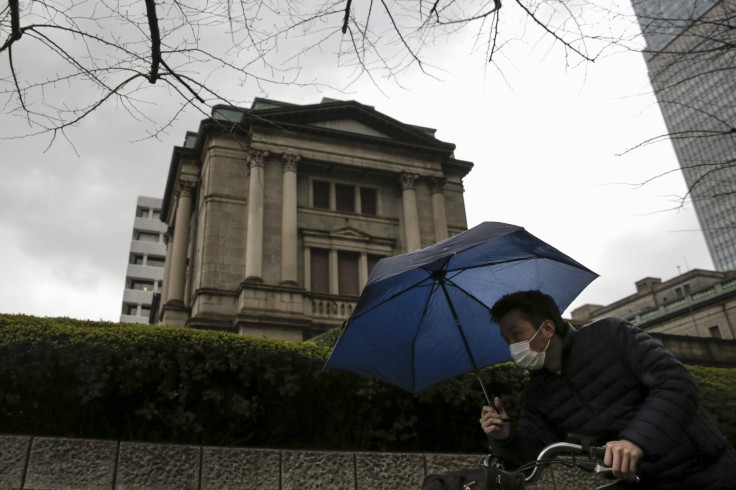Bank Of Japan Holds Fire On Fresh Stimulus, Leaves Key Rate Unchanged

In a widely expected move, the Bank of Japan (BoJ) Tuesday held fire on further stimulus and kept its target of increasing the monetary base at an annual pace of 80 trillion yen. The decision to keep interest rates steady at -0.1 percent comes less than two months after the central bank ventured into the negative territory to increase liquidity and boost growth.
“Japan’s economy has continued its moderate recovery trend, although exports and production have been sluggish due mainly to the effects of the slowdown in emerging economies. Overseas economies have continued to grow at a moderate pace, but the pace of growth has somewhat decelerated mainly in emerging economies,” the BoJ said in a statement released Tuesday.
Since the central bank’s last meeting on Jan. 29, economic data has shown little momentum for a recovery from a contraction the economy registered in the final quarter of 2015. The bank’s consumer-price measure also failed to budge in January, and sentiment among consumers and merchants has slumped. Japanese stocks have also dropped slightly since negative interest rates were adopted.
And, so far this year, the yen has gained 6 percent against the dollar, gaining from its safe-haven status. A strong yen is bad news for Japanese exporters, as it makes their products more expensive.
Over the past few months, investors have turned to longer-term Japanese government debt. However, the yield on Japan’s benchmark 10-year government bond last week fell to a record low in negative territory. The yield, which moves inversely to bond prices, was last at -0.016.
“Risks to the outlook include uncertainties surrounding emerging and commodity-exporting economies, particularly China, developments in the U.S. economy and the influences of its monetary policy response to them on the global financial markets,” the BoJ said in the statement.
Also on Tuesday, the BOJ announced its decision to exempt money reserve funds (MRFs) — which invest in short-term instruments such as government debt carrying maturities of less than a year — from the -0.1 percent rate. These funds would be subject to a zero interest rate starting in May.
BoJ Governor Haruhiko Kuroda will hold a news conference at 3:30 p.m. local time (2:30 a.m. EDT) to explain the bank’s policy decision, when he may offer hints to the path of future monetary policy decisions.
© Copyright IBTimes 2024. All rights reserved.






















